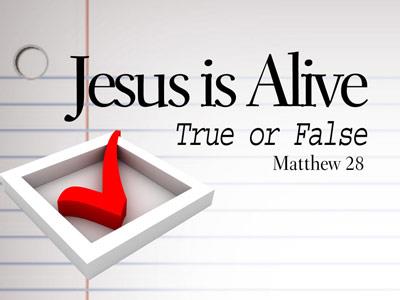-
"No Pleasure" Series
Contributed by W. Alderman on Nov 28, 2017 (message contributor)
Summary: This is a study from the 10th chapter of Hebrews that deals with the superiority of Christ’s priesthood.
NO PLEASURE
Hebrews 10:1-18
In Christian service, there is no greater motive for serving God than doing those things which would be pleasing to Him and that would also bring pleasure to Him. We are told in this chapter that the Lord found no pleasure in burnt offerings and sacrifices. We must understand that it was God who ordained the legal system when He gave the law to Moses. We also must understand that there is nothing wrong with the law. The offerings that were given which pertained to the law were not capable of satisfying the holy demands of God; these weak sacrifices could only put off the wrath of God for a little while. In an absolute and also in a relative sense, the Lord could not find pleasure in the offering of the “burnt offerings and sacrifices for sin” (Vv. 6, 7). When the offerings are compared to the offering of His Son, they proved to be entirely inadequate. When these burnt offerings and sacrifices are seen by the Lord they absolutely do not measure up, thus He finds no pleasure in them.
One might ask, if these offerings were not suitable to forever put off the wrath and the anger of God then why did He ordain the legal system to begin with? Galatians 3:19-25 answers this concern when it tells us that the law “was our schoolmaster to bring us unto Christ.” (V. 24). We also are instructed that the law was “added because of transgressions, till the seed should come to whom the promise was made; and it was ordained by angels in the hand of a mediator.” (V.19). This verse shows us that the offerings served a very temporary purpose until the “seed should come” and that seed was the Lord Jesus Christ.
We will examine: I. God’s Displeasure Revealed as It Concerned the Old Offering (Vv. 1-8); II. God’s Pleasure Recognized as It Concerns the New Offering.
I. GOD’S DISPLEASURE REVEALED AS IT CONCERNED THE OLD OFFERING (Vv. 1-8)
From time to time, I will pull out a certain old video which was made over twenty years ago. When I do, it brings me joy to watch and hear my parents, who are deceased, once again speak. The image is of them and the voice is theirs, but it is only a shadow of what was… The “law having a shadow of good things to come” is only a shadow of Him who is. In regards to my parent’s shadow, if I could, I would trade the shadow for them. The shadow follows them. In regards to Him, I will not trade Him for the shadow. In His case the shadow came first. The law is that shadow. With Him being the substance which the shadow represented, we now have a better offering.
A. The Offerings Were Insufficient to Satisfy God’s Requirements. (Vv.1-3)
The offerings that were prescribed by the law had to be offered over and over again. There was an insufficiency that marked these offerings as they were identified with the sin cursed earth. Each of the offerings left a “remembrance again made of sins every year.” The offerings were made on the Day of Atonement to put off the wrath of God until Christ Jesus could come and forever put off God’s anger. God’s anger is a Holy anger that demonstrated God’s disposition to both the sin and the sinner. He certainly is angry with sin and His anger extends to the sinner, but thanks unto God, for also so does His mercy. There is mercy and peace for the time of need. “But God, who is rich in mercy, for his great love wherewith he loved us, Even when we were dead in sins, hath quickened us together with Christ, (by grace ye are saved;) (Ephesians 2:4, 5).
Everything which lies underneath the curse will be insufficient in meeting God’s Holy requirements. God’s standard is way above man’s and any offering that he is capable of offering apart from that of faith and obedience will only be a “Cain-like” offering in which God will have no respect (Genesis 4:5). The entire creation is underneath the sin curse and thus is so affected that nothing eternally satisfying can be extracted as an offering from it. Though the offering made according to the law was inefficient and insufficient in and of itself, the Lord honored it, because when it was being offered, the person offering it demonstrated a faithful obedience to the Lord. They were exercising a faith that was anticipating the better offering of Christ, Himself. They in doing so may not have understood all of the theology that was involved, but they obeyed anyway while making their offerings unto the Lord. The Lord was not saying that the offering was sufficient at this time only the exercising of faith was sufficient in anticipation of the offering that was perfect.

 Sermon Central
Sermon Central



